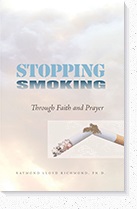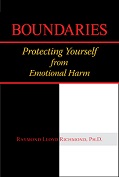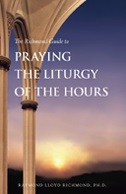|
|
|
If
you hate your body
you don’t love God. |
Fear |
Therapy |
Spiritual Counsels |
Books |
About CSF
Introduction |
Is Smoking Tobacco a Sin? |
Enslavement |
Finding Freedom |
The Mistake of Self-punishment |
Reasons for Becoming a Nonsmoker |
Understanding Withdrawal Symptoms |
Stopping Smoking through Faith and Prayer |
Visualization and Prayer Technique |
Coping with Cravings
 HY
does the Catechism of the Catholic Church not say that smoking is a sin? Well, many
of the men who wrote the Catechism were smokers. So, if you have ever wanted an example
of unconscious sin, here it is. HY
does the Catechism of the Catholic Church not say that smoking is a sin? Well, many
of the men who wrote the Catechism were smokers. So, if you have ever wanted an example
of unconscious sin, here it is.
Is Smoking Tobacco a Sin?
Is smoking tobacco a sin? Many persons who
want to justify smoking will look to human reason for an answer to this question. They
look for an excuse rather than look to the testimony of love. Thus they will say, “Many
saints and popes smoked cigarettes and cigars. So how can smoking be wrong?” Yet those
saints and popes lived in a culture where smoking was socially accepted and commonplace.
Those saints and popes were ignorant of the psychology of the
unconscious.
They were ignorant of the subversive power that the desire of the Other
can have in shaping someone’s behavior. And they ignored the words of God Himself when
He warned, ages ago, “Neither shall you allege the example of the many as an excuse for doing
wrong” (Exodus 23:2).
So, is anything wrong with smoking tobacco?
Yes, for several reasons. It’s a sin because it’s a poison that harms the body, the temple
of the Holy Spirit. It’s a sin because it pollutes the environment, God’s creation. It’s a
sin because secondhand smoke can harm others. It’s sin because it’s a bad example that can
lead children astray. And, more that all of these other reasons, it’s a sin because it is
a desire for pleasure that draws a person away from the desire for God.
How can there be anything wrong with pleasure?
Well, food can be pleasurable, but the primary purpose of food is nutrition, whereas the
pleasure in eating is secondary. Smoking tobacco has no psychologically or spiritually
healthy purpose other than to experience pleasure (as well as the avoidance of emotional
pain). Thus the pleasure of smoking is primary, and when a pleasure is primary it has no
more purpose than to be an idol—an idol that smirks at and subverts love for God.
|
Furthermore, in contrast
to cigarettes, cigars have a different psychological meaning. A cigar is not just a
cigar. A man who smokes cigars does so to create the illusion that by smoking cigars
he is confident and powerful.
This goes deeper than children who start smoking cigarettes during a stage of
identity
formation in which they feel psychologically empty within themselves—that
is, they lack confidence, self-esteem, and love for and trust in God—and so,
in their confusion, they want some way to identify with what seems to be confidence in
others around them. For example, adolescents who resent
their parents’ hypocrisy and lack of
true love can get caught in the illusion that if
they start smoking then they, too, can be as seemingly confident as the adults who
mistreat them.
In contrast, a man who smokes a cigar is really an insecure boy trying to suck manhood
from the penis of an idealized father. And why is this a sin? Because he cannot suck
manhood from God the father. All he can do is receive Christ in the Blessed Sacrament.
And if that is not enough, then he is not really a Catholic man; thus, he is as much a
failure as his father. |
|
When you light a cigarette, a cigar, or a
pipe, you are playing with hell fire, because tobacco smoke is the smoke of Satan.
When you breathe that smoke you are poisoning the breath of the Holy Spirit. Tobacco
smoke therefore opens a hellgate to tobacco addiction and demonic possession, because
demons want you to love the addiction more than anything else—more than the welfare of
your own soul and, therefore, more than God. Thus, when you fill your mouth—and even
your lungs—with smoke, you are unconsciously filling the lack and limitation of your
life with the smoke and mirrors of a demonic illusion, rather than with the reality of
love for God.
Enslavement
The illusions surrounding the first
few cigarettes, however, have no more substance than a puff of smoke, because once
nicotine gets into your body, it enslaves you to a continuous need for it. Even those
who might claim that they are not addicted because they do not experience dramatic withdrawal
symptoms if they stop smoking for a while are still addicted to the pleasure of nicotine.
Like a deadly parasite, nicotine takes over your body so that you value the pleasure of this
deadly chemical more than anything else in life, more even than life itself. More even
than God Himself.
So there you are, one dark day, helpless and
cowering in a cold doorway, damp with rain, desperately sucking the illusion
of strength and power out of a reeking cigarette, thinking to yourself, in
your bleak emptiness, “This is life?” And all the while you
fear that, without smoking, life will be bleak and
empty.
Well, there’s more to life
than slavery to illusions.
And so, knowing all of this,
and yet continuing to believe in tobacco more than you
believe in Christ, is a big
mistake.
|
How often were
you criticized and humiliated as a child by your parents? How often did you
then condemn yourself for being worthless and
inadequate? And how often do you reach for tobacco out of unconscious
anger as a secret wish to carry out that
condemnation?
 Isn’t it time to
give yourself a break? Isn’t it time to
give yourself a break? |
|
Finding Freedom
Many individuals become nonsmokers
every day without professional help and with only the desire to achieve their
goal of finding freedom from an overpowering—and, at its psychological and
spiritual core, self-destructive—habit. Despite the glamor attributed to it
by the tobacco, entertainment, and advertising industries, smoking does nothing
to enhance life and everything to pollute and defile it.
So, as you set
out to become a nonsmoker, you will discover two things: smoking involves
an addiction to nicotine, and it involves a pattern of habitual
behaviors.
1. |
For some
individuals, the the nicotine addiction can be overcome through “will power”
or prayer, while for other individuals nicotine patches or nicotine gum may
be of help. Also, see the section below about understanding withdrawal
symptoms. |
|
2. |
Overcoming habitual behaviors
involves deliberate, repeated attempts to break old patterns—patterns that
make tobacco seem like a “old friend” whose absence causes life to feel
flat and empty.
There can be
many reasons, some completely outside your awareness, that keep you hanging
on to those old enemies in friends’ clothing. Some individuals, for
example, have such a profound
unconscious
sense of despair and self-loathing that smoking aptly serves a dark wish for
self-destruction. But by becoming a non-smoker you can reclaim the self-respect
that you have been throwing away up until now. |
|
And remember—many persons who successfully
become nonsmokers will have had at least one setback, because “just one puff” easily
rekindles old patterns. So if you do fall back, don’t
punish yourself; instead, admit
to God that you made a mistake and pray for the courage and guidance to learn from
your mistakes.
The Mistake of
Self-punishment
The problem with self-condemnation
and self-punishment is that it usurps God’s wisdom, and, in doing that,
it pushes away God’s mercy. As long as
you’re punishing yourself, you simply are denying any mercy that God
could show to you.
Believe, therefore, as your deepest
comfort—more even than the comfort of tobacco—that God desires your salvation
and will forgive your mistakes if only you stop hating yourself and turn to Him
in love, asking Him to teach you the ways of holiness.
|
It is the trick
of demons to tell you otherwise, however. They will say that you are a bad
person, that God hates you, and that there is no point in asking God for help.
If you believe these lies, your belief in them will make it impossible to free
yourself from self-punishment. |
|
Reasons for Becoming
a Nonsmoker
Pray about why you want to be a nonsmoker.
Write down some of your most important reasons on a small card. Review these reasons
several times a day, especially when you’re tempted to reach out to tobacco. Below are
some suggestions that you can use or modify as you wish.
• |
My being a nonsmoker will
be an act of repentance for a previously unforgivable sin: that of refusing to believe
that smoking is a sin. |
• |
My being a nonsmoker will
cut off one opening to demonic oppression. |
• |
My being a nonsmoker will
improve the quality of my sleep in general and will help to reduce insomnia,
difficulty getting up in the morning, and daytime sleepiness. |
• |
My being a nonsmoker will
strengthen my heart, improve my breathing capacity, and bolster my circulatory
system. |
• |
My being a nonsmoker will
increase my immune response to colds, flu, and other diseases. |
• |
My being a nonsmoker will
help lower my blood pressure. |
• |
My being a nonsmoker will
help me cut down on my use of alcohol. |
• |
My being a nonsmoker
will help protect the health of other persons from Environmental Tobacco
Smoke (ETS). |
• |
And, for women who are or
may become pregnant, my being a non-smoker will help to protect my unborn baby from
ETS and will decrease the risk of miscarriage. |
• |
As a nonsmoker I will
breathe more easily and won’t have morning cough or phlegm. |
• |
As a nonsmoker, my senses
of smell and taste will improve. |
• |
As a non-smoker I will have
more energy and be more productive in all that I do. |
• |
As a nonsmoker I will be
free from my slavery to nicotine addiction, and so I will have more command of
my life. |
• |
As a non-smoker I will be
setting a good example for children. |
Understanding
Withdrawal Symptoms
Smoking withdrawal symptoms include
cravings; tension, anxiety, irritability, and restlessness; numbness in arms and
legs; dizziness; coughing; and hunger.
Some symptoms are related specifically
to nicotine withdrawal, while other symptoms are the result of your body returning
to a healthy state and recovering from your habitual abuse of toxic tobacco smoke.
If you stop smoking by using nicotine patches or nicotine gum, you may not experience
all the symptoms described.
• |
You can stop a
craving by focusing your attention on
something else, such as prayer. Cravings usually last for only
a couple minutes, so an attention diversion need only be immediate and
consistent, not complicated. |
• |
Muscle
tension, anxiety, irritability, and restlessness can be reduced
through contemplative prayer or by using a relaxation technique as described
in the next section. |
• |
You may
feel tingling sensations or
numbness in your arms and legs. These sensations
usually indicate improved circulation taking place as a result of your body
experiencing freedom from the poisons in tobacco smoke. |
• |
You may at times feel
dizzy or lightheaded. These sensations
usually mean that more oxygen is getting into your brain now that the carbon
monoxide associated with smoking is no longer present. |
• |
Some individuals find themselves
coughing more after quitting smoking than
before. The reason for this is that the cilia that line the lungs are working
to clean out all the tars and other debris in your lungs. |
• |
Increased
hunger is a common withdrawal symptom. To avoid weight gain, it is
important to exercise regularly; drink 8 oz (250 ml) of water per hour, even if
you do not feel thirsty; and have plenty of low-fat foods available for
meals. |
Smoking Cessation
Through Faith and Prayer
If you are addicted to any substance,
you are declaring with your behavior that you “love” the addiction
more than you love God, and so you will fail to love God as Christ commanded
us: You shall love the Lord, your God, with all your heart, with all your
soul, and with all your mind (Matthew 22:37). But, if only you train
yourself, through faith and prayer, to desire
holiness more than you desire an addiction, any addiction can be
overcome.
Stopping smoking, therefore,
involves two things: overcoming the
addiction to nicotine, and overcoming
the habit of always reaching for a tobacco
(either as a behavioral reward or as a means to relieve anxiety)—instead
of reaching out to God in prayer.
To overcome the addiction
to nicotine, you have three choices. You can gradually reduce the amount
of tobacco that you smoke. Or you can use nicotine patches to put nicotine
into your system (while you refrain from smoking) as you gradually reduce
the dosage of the patches. Or you can just quit “cold
turkey”—nicotine withdrawal is unpleasant, but
short-lived.
To overcome the habit
of constantly reaching for tobacco, it will be necessary to teach yourself
to act in new ways. This takes some conscious effort. The first step is to
recognize, as it is happening, the urge to reach for tobacco; the second
step is to tell yourself to do something different. Some people will carry
around a cinnamon stick, for example, and put it in their mouth in place
of a cigarette.
|
While you are making
all these changes, it can help greatly to use some sort of relaxation technique.
For more information about relaxation techniques, see my webpages called
Progressive Muscle Relaxation
and
Autogenics Training
on A Guide to Psychology and its Practice. A relaxation CD (true to the Catholic
faith) from the present website can help you experience relaxation as well.
|
|
Moreover, the Catholic Church
offers a centuries-old form of relaxation and emotional support: prayer.
After all, what keeps you chained to your addiction?
Fear. Fear that life will be bleak and empty without
smoking. And what is the most effective way to overcome fear? To
love—to be filled with all the fullness of
God.
Accordingly, I offer below two
ways to use prayer to help you stop smoking. The first way is best practiced
at least two times a day (morning and night). The second way is a small card
that you can print and carry with you; whenever you feel the urge to smoke
tobacco, pull out the card and say the prayer. By the time you have finished,
the craving for tobacco will have dissipated.
Visualization
and Prayer Technique
In general, changing unwanted
behavior comprises three basic steps:
1. |
To know how ugly the behavior
is and how much damage it causes to yourself and to others. |
2. |
To regret the damage caused by
the behavior. |
3. |
To know the benefits of new and
different behavior. |
Note carefully, though, that
in trying to overcome an addiction you will
immediately encounter a frustrating paradox:
thinking about the negative consequences of an addiction
will only increase the desire for the addictive substance. So
why does this happen? Well, the psychological
defense at the core of any addiction is denial, so when contemplating
any negative idea (such as getting cancer from smoking), your mind will crave
the intense pleasure of the addiction as a way to override (i.e., deny) the
frightening idea.
Therefore, even though it is
important to know the negative consequences of the addiction, the fear
of those consequences in itself won’t be nearly so much a motivation
for overcoming the addiction as will be the hope of positive changes.
Consequently, those positive changes need to be visualized very, very
clearly.
So here is how
to do it: practice the following procedure at least twice a day until you
no longer need it.
First,
enter a state of relaxation. Here, you can simply sit (or kneel)
and pray quietly. This is important because the next two steps (if done properly)
will arouse substantial anxiety, and you need to be able to reduce that anxiety
again.
Second,
create a negative mood state in which you visualize the harmful and disgusting
effects of the unwanted behavior. Instead of defending your
behavior—to yourself, to others, and to God—see the smoking addiction
for what it is in all its gruesome reality. For example, smell the stench
of the smoke on your clothes and body; see the stains on your fingers and
teeth; notice your shortness of breath and coughing; visualize the poisons
coating your lungs and other internal organs. After the intense negativity
of this mood has been felt fully, reduce the anxiety with relaxation. Then
pray the Hail Mary prayer.
Third,
contemplate how miserable and wretched your life will be if this behavior
does not change. For example, see yourself wheezing for breath
and dying of cancer. Imagine other persons around you encouraged in their
own addictions because of your negative influence.
 Then, after the intense negativity of this mood has been felt fully, reduce
the anxiety with relaxation, and pray the Hail Mary prayer
Then, after the intense negativity of this mood has been felt fully, reduce
the anxiety with relaxation, and pray the Hail Mary prayer
Now come the
most important steps.
Fourth,
create a positive mood state in which you visualize the beneficial effects
of new, healthy behavior. For example, see yourself as calm and
confident as a non-smoker, relaxed and able to concentrate, free of frustration
and tension, a positive influence on others. Remember here your reasons for
wanting to stop smoking. Use your relaxation technique to enjoy a peaceful
state of mind with a deep sense of hope for yourself and love for others.
Pray the Hail Mary prayer.
Fifth,
reinforce your positive mood with positive statements of
validation. Repeat the statements several times. Create your own,
or select from the following examples.
| • |
When I trust in You,
Lord, I do not need to soothe myself with tobacco. Through Your grace,
I am no longer a slave to impulses and addiction. |
| • |
Lord, when grounded
in prayer, I work calmly and confidently. Give me the grace to not let my
self-confidence be bothered by small mistakes. In You I can overcome all
obstacles with total confidence. |
| • |
Give me the grace,
Lord, to respect my own body as a temple of the Holy Spirit and to present
myself to others with respect and dignity. |
| • |
Give me the grace,
Lord, to remain calm, relaxed, and composed in any situation. |
| • |
Lord, let Your calmness
and patience reflect through me to shine upon others as compassion and sensitive
understanding. |
| • |
You, Lord, give me
an experience of peace and calm that cannot be threatened by anything outside
myself. I thank you, Lord; I refuse to be jealous or envious, and I wish
peace and good to all. |
| • |
Lord, help me to
remember that in You there are no
“good ” days or
“bad ” days; there is only love. |
Sixth,
conclude with a prayerful closure to the
session. Recite the following
prayers:
| • |
The Hail, Holy Queen (Salve
Regina).
HAIL,
holy Queen,
Mother of Mercy;
hail, our life, our sweetness, and our hope.
To thee do we cry,
poor banished children of Eve;
to thee do we send up our sighs,
mourning and weeping in this vale of tears.
Turn then, most gracious Advocate,
thine eyes of mercy towards us;
and after this our exile,
show unto us the blessed fruit of thy womb, Jesus.
O clement, O loving, O sweet Virgin Mary.
V. Pray for us, O holy Mother of God.
R. That we may be made worthy of the promises
of Christ.
Amen. |
|
|
| • |
The prayer to St. Michael the
Archangel.
SAINT
Michael the Archangel, defend us in battle;
be our protection against the wickedness and snares of the devil.
May God rebuke him, I humbly pray:
and do thou, O Prince of the heavenly host,
by the power of God,
cast into hell Satan and all the evil spirits
who prowl about the world seeking the ruin of souls.
Amen. |
|
|
| • |
The following invocation, thrice
repeated:
V. Most Sacred Heart of Jesus,
R. Have mercy upon us. |
Coping With
Cravings
Copy the following prayer card,
and whenever you feel a craving for tobacco, pull out the card and say
the prayers:
PRAYER FOR STOPPING
SMOKING
|
|
O
MARY, conceived without sin, pray for us who have recourse
to thee. Through the grace of your purity, may this unclean habit cease. |
|
FROM
the stench of smoke, the foul taste in my mouth, the stains on my hands and
teeth, pray for my release.
Hail Mary . . . |
|
FROM
coughing and phlegm, from polluted blood, from heart and lung disease, pray
for my release.
Hail Mary . . . |
|
FROM
habit and slavery, pray for my release.
Hail Mary . . . |
|
FROM
tension, fear, and anxiety, pray for my release.
Hail Mary . . . |
|
FOR
health and calm and peace, pray for me.
Hail Mary . . . |
|
Pray for us, O holy
Mother of God, that, by Christ redeemed, we will choose to live in purity.
Amen. |
|


Healing
|
Though
Demons
Gloat
|
Anger
&
Forgiveness
|
Falling
Families,
Fallen Children
|
Disasters
and
trauma
|
Psychology
from the
Heart
|
 |
 |
 |
 |
 |
 |
Psychological Healing
in the Catholic Mystic tradition |
True Christian
Identity
In Confronting
Evil |
How to Turn the
Emotional Wounds
of Daily Life Into
Psychological Growth. |
The Psychological
and
Spiritual Remedy
For Our Cultural
Disintegration |
The Struggle For
Psychological
and Spiritual
Growth |
Collected Texts
About the Spiritual Depth of
Clinical Psychology |
More information |
More information |
More information |
More information |
More information |
More information |
Desire
and
Distraction
|
Fear
|
Stopping
Smoking
|
Borderline
Personality
Disorder
|
Catholic
Compassion
|
 |
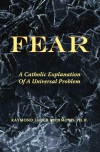 |
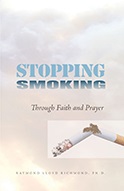 |
 |
 |
A Catholic Perspective
On Behavioral Change
and Its Subversion |
A Catholic Explanation
Of a Universal
Problem |
Through
Faith
and
Prayer |
Healing
the
Rage |
When They Tell You
That the Moral Teachings
of the Catholic Church
Are Wrong |
More information |
More information |
More information |
More information |
More information |
|




 Isn’t it time to
give yourself a break?
Isn’t it time to
give yourself a break?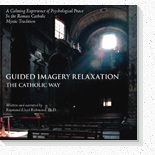
 Then, after the intense negativity of this mood has been felt fully, reduce
the anxiety with relaxation, and pray the Hail Mary prayer
Then, after the intense negativity of this mood has been felt fully, reduce
the anxiety with relaxation, and pray the Hail Mary prayer
